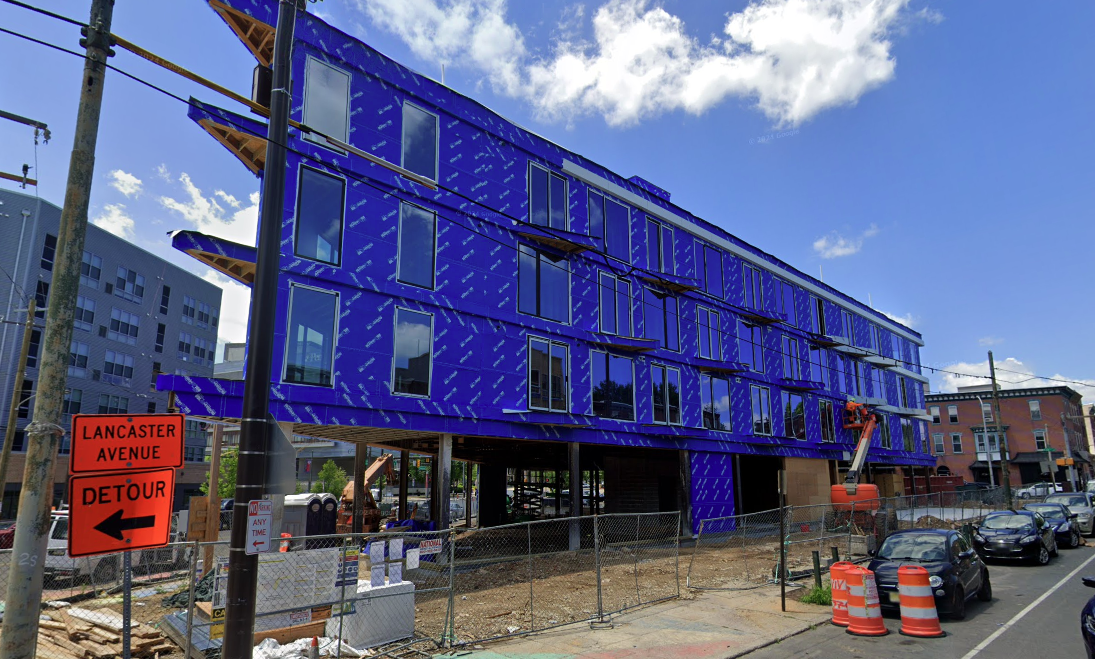Artificial Intelligence (AI) has been steadily revolutionizing numerous industries, and real estate is no exception. The adoption of AI in real estate promises to reshape the landscape, offering unprecedented capabilities in data analysis, property management, customer engagement, and investment decisions. This article delves into the transformative power of AI in real estate, drawing insights from the latest advancements and applications.
The Emergence of AI in Real Estate
AI's potential to transform businesses, industries, and society has been recognized for decades. However, recent advancements have propelled AI from a niche technology to mainstream adoption. For the real estate industry, embracing AI strategically can lead to significant transformations. AI and generative AI are among the top technologies expected to impact real estate over the next few years. Despite this, many in the industry still lack a comprehensive understanding of AI's capabilities.
AI VS Generative AI
AI broadly uses machine learning and deep learning algorithms to perform tasks requiring learning from experience, understanding complex concepts, recognizing patterns, interpreting natural language, and making independent decisions. Generative AI, a subset of AI, focuses on creating new content, designs, or solutions using advanced algorithms. While both forms of AI are set to impact real estate, this article primarily focuses on AI in a broader context, highlighting generative AI where applicable.
PropTech and AI Integration in Real Estate
The PropTech sector has laid a solid foundation for AI integration into real estate. Over 80% of real estate occupiers, investors, and developers plan to increase their technology budgets in the next three years. AI-powered solutions are already improving efficiency and cost-savings across various real estate functions, including:
- Document Sorting and Data Standardization
- Streamlined Data Management: AI algorithms can quickly process and organize vast amounts of data, reducing the time and effort required for manual data entry.
- Enhanced Data Analytics: By standardizing data formats, AI allows for more accurate and comprehensive portfolio analytics, helping stakeholders make better-informed decisions.
- Automated Compliance: AI can ensure that all documents meet regulatory standards, minimizing the risk of non-compliance and associated penalties.
- Automated Facility Management
- Predictive Maintenance: IoT sensors combined with AI can predict when maintenance is needed, preventing costly breakdowns and extending the lifespan of equipment.
- Energy Optimization: AI analyzes energy usage patterns and recommends adjustments to reduce consumption and costs.
- Security and Safety: AI can integrate with security systems to detect and respond to potential threats in real-time, enhancing overall property safety.
- Price Modeling and Prediction
- Market Analysis: AI models can analyze vast amounts of market data to identify trends and patterns, providing more accurate price predictions.
- Risk Assessment: AI helps in assessing the risk associated with different investment opportunities by considering a variety of factors, including economic indicators and market volatility.
- Customizable Forecasts: Investors can tailor AI-powered models to fit specific criteria, such as location, property type, and investment horizon.
- Satellite Image Processing
- Property Condition Assessment: AI can analyze satellite images to assess the condition of properties, identifying issues such as roof damage or water intrusion that may not be visible from ground level.
- Environmental Monitoring: AI processes satellite data to monitor environmental changes that could impact property values, such as rising sea levels or urban sprawl.
- Disaster Response: AI can quickly analyze post-disaster satellite images to assess damage and assist in recovery planning.
- Construction Monitoring: Drones equipped with AI can capture high-resolution images and 3D models of construction sites, providing real-time updates on progress.
- Quality Control: AI can compare captured images against project plans to ensure that construction meets specifications and identify any deviations early.
- Site Safety: AI analyzes site conditions to identify potential safety hazards, helping to prevent accidents.
- Resource Allocation: AI optimizes the allocation of resources, ensuring that materials, labor, and equipment are used efficiently.
- Timeline Management: AI algorithms can create and adjust project schedules based on real-time data, reducing delays and keeping projects on track.
- Workflow Automation: AI streamlines workflows by automating routine tasks, allowing project managers to focus on higher-level strategic decisions.
- AI-powered Chatbots: These chatbots provide instant responses to tenant queries, improving customer service and reducing the workload on property management staff.
- Leasing Automation: AI can handle various aspects of the leasing process, from scheduling viewings to processing applications, making the process more efficient and user-friendly.
- Personalized Interactions: AI analyzes tenant data to provide personalized recommendations and services, enhancing tenant satisfaction and retention.
These advancements are transforming the real estate industry, making operations more efficient and cost-effective while enhancing the overall experience for investors, developers, and tenants.
Current Utilization of AI in Real Estate
Early adopters of AI-enabled solutions are already seeing significant returns, from improvements in HVAC operations and energy efficiency to the streamlining of commercial insurance processes. Such success stories highlight the potential of AI to drive efficiency and sustainability in real estate.
AI is being utilized across various other aspects of the real estate industry, providing significant improvements in efficiency, cost savings, and customer experience. Here are some of the key areas where AI is currently making an impact:
- Predictive Analytics: One of the most practical applications of AI in real estate is predictive analytics. AI algorithms analyze vast amounts of data to predict property values, market trends, and investment opportunities. This helps investors and real estate professionals make informed decisions based on accurate forecasts.
- 3D Modeling and Virtual Tours: AI-powered tools are creating digital twins of properties, allowing potential buyers to explore spaces virtually. This technology has become especially important during times when physical visits are limited. These 3D models help buyers get a realistic view of properties, enhancing their decision-making process.
- Smart Home Devices: AI is integral to the functionality of smart home devices, which are becoming increasingly common in modern properties. Smart thermostats, lighting systems, security cameras, and other devices use AI to learn user preferences and optimize their operations, providing convenience, energy savings, and enhanced security for homeowners and landlords.
- Property Management: AI is revolutionizing property management by automating tasks such as tenant screening, rent collection, and maintenance scheduling. AI chatbots can handle tenant queries, schedule maintenance requests, and even assist in lease negotiations, reducing the workload for property managers and improving tenant satisfaction.
- Automated Valuation Models (AVMs): AVMs use AI to generate property valuations based on various factors, including location, property features, and market trends. These models provide quick and reliable estimates that help in setting competitive prices and making investment decisions.
- Fraud Detection and Prevention:
In the mortgage and financing sector, AI is used to analyze borrower information and detect potential fraud. By examining patterns and anomalies in data, AI can identify fraudulent activities and prevent them, ensuring a more secure transaction process.
- Natural Language Processing (NLP):
NLP applications in real estate include AI-driven chatbots and virtual assistants that can handle customer inquiries, provide property information, and assist with transactions. These tools improve customer service by offering immediate and accurate responses to common queries.
- Image Recognition and Computer Vision:
AI-powered image recognition can analyze photographs of properties to assess their condition, identify features, and even detect potential issues such as structural damage or pest infestations. This technology is useful for property inspections and appraisals.
- Market Analysis and Insights:
AI can process large datasets to extract valuable market insights, such as identifying emerging trends, comparing market performance, and predicting future market conditions. These insights help real estate professionals stay ahead of the curve and make strategic decisions.
- Energy Management Systems: AI systems can optimize energy consumption in buildings by learning usage patterns and adjusting settings accordingly. This not only reduces utility costs but also contributes to sustainability efforts by minimizing energy waste.
AI's Long-term Impact on Real Estate
AI has the potential to transform how people live, work, and play over time. Its impact on the real estate market is multifaceted:
- Geolocation: AI companies and investments tend to cluster around tech hubs and innovation centers. This trend is expected to continue, driving demand in these locations.
- Altered Demand Among Assets:
The development of AI requires more advanced data centers, energy grids, and connectivity infrastructure.
- New Asset and Product Types: AI-compliant infrastructure, such as "real intelligent buildings," will become the norm, featuring high sustainability performance and net-zero capabilities.
- Revenue and Investment: AI-powered underwriting and processes will enable faster transactions and more efficient market understanding, catalyzing global investments. AI infrastructure will also support the expansion of "space as a service" models.
- Design and Space Function: AI will facilitate experience-driven design and highly customizable environmental settings, enhancing the user experience.
AI's transformative power is poised to reshape the real estate landscape, offering enhanced data analysis, property management, customer engagement, and investment decision-making capabilities. While challenges and uncertainties remain, the strategic and responsible adoption of AI can unlock significant opportunities for growth and efficiency in real estate. As the industry continues to evolve, staying ahead of technological advancements will be key to maintaining a competitive edge.
At New Age, we stay ahead of the game by utilizing AI in our day-to-day workflows to ensure a smooth and positive experience for our clients and customers. Looking to rent, buy, or sell a property? Or do you need a management company for your investment property?
Contact us now to get the process started!
















